Updated 05/08/2010
Recent industry lists ranking the great and good in journalism and the media fell a bit short of the mark for Journalism.co.uk. Where were the online innovators? Where were the journalists on the ground outside of the executives’ offices?
So we’ve compiled our own rundown listing those people we think are helping to build the future of journalism and the news media.
Some important points to note:
- There are no rankings to this list – those included are from such varied areas of work it seemed pointless;
- We will have missed some people out – let us know in the comments below or with the hashtag #jlist who you are working with that should be included;
- We’ve listed groups as well as individuals – with individuals we hope you’ll see them as representing a wider team of people, who have worked together on something great;
- And it’s not limited to 50 or 100 – we’ll see where it takes us…
So here’s the first batch. There’s a Twitter list of those included so far at this link and more will be added in the coming weeks.
Click on the ‘more’ link after these five to to see the full list.
 Tomáš Bella
Tomáš Bella
Tomáš Bella was editor-in-chief and deputy director of Sme.sk, the Slovak republic’s most popular news site. He was author of the first European newspaper-owned blogportal (blog.sme.sk, 2004) and the first digg-like service (vybrali.sme.sk, 2006). In April 2010 he co-founded Prague-based new media consultancy NextBig.cz and is working on a payment system to allow the access to all the premium content of major newspapers and TV stations with one payment.
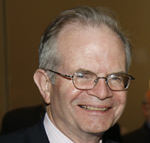 Paul Steiger
Paul Steiger
While ProPublica’s not-for-profit, foundation-funded model may be something commercial news organisations can never share, its investment in and triumphing of investigative and data journalism cannot be overlooked. The way in which it involves a network of readers in its research and actively encourages other sites to “steal” its stories shows a new way of thinking about journalism’s watchdog role. Image courtesy of the Knight Foundation on Flickr.
 Chris Taggart
Chris Taggart
Paul Bradshaw’s description of his fellow j-lister: “Chris has been working so hard on open data in 2010 I expect steam to pour from the soles of his shoes every time I see him. His ambition to free up local government data is laudable and, until recently, unfashionable. And he deserves all the support and recognition he gets.”
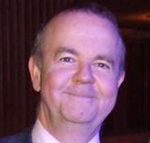 Ian Hislop/Private Eye
Ian Hislop/Private Eye
Not much to look at on the web perhaps, but the Eye’s successful mixture of satire, humour and heavyweight investigations has seen its circulation rise. It blaized a trail during the Carter-Ruck and Trafigura gagging ordeal and has even lent it’s support to j-list fellow the Hackney Citizen to protect press freedom from international to hyperlocal levels. Image courtesy of Nikki Montefiore on Flickr.
 Brian Boyer
Brian Boyer
Amidst the talk of what journalists can learn from programmers and what coding skills, if any, journalists need, Brian Boyer was making the move the other way from programming to a programmer-journalist. His university and personal projects in this field have been innovative and have got him noticed by many a news organisation – not least the Chicago Tribune, where he now works as a news applications editor. He blogs at Hacker Journalist.
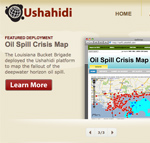 Ushahidi
Ushahidi
Originally built to map reports from citizens of post-election violence in Kenya, Ushahidi’s development of interactive, collaborative and open source mapping technology has been adopted by aid agencies and news organisations alike. It’s a new means of storytelling and a project that’s likely to develop more tools for journalists in the future.
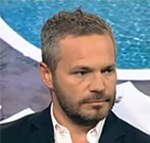 Tyler Brûlé
Tyler Brûlé
Love or loathe Monocle as a magazine, you’ve got to admire how it’s been built as a successful business and brand. It’s more than just magazines – it’s merchandise, Tote bags, something aspiration. And under Brûlé’s control it’s making money and investing in journalism with new foreign bureaux being launched.
 Keith Magnum
Keith Magnum
Once Keith Magnum gets an idea in his head, you’d be hard pressed to stop him. The quarterly, hand-delivered Hackney Citizen has gone monthly since its launch in mid-2008 and its building an impressive online following. Keeping Hackney Council on its toes, the Citizen shows how local news can be reinvigorated with a more collaborative, open approach to journalism.
 Ed Walker
Ed Walker
Ed Walker makes our list not only for the community-building work he’s doing in Cardiff for Media Wales but for “making his own luck”: his hard work and dedication to his own hyperlocal news site Blog Preston, launched whilst studying journalism at UCLAN, was the perfect springboard. A great example of a young journalist not afraid to carve out his own niche.
 Martin Stabe
Martin Stabe
Now online editor for Retail Week, Stabe is driving online developments in practice and has been helping to push new journalism ideas ahead for years. When he speaks about online journalism, listen up.
 Julian Todd
Julian Todd
Julian Todd is author of hundreds of “cutting-edge” FOI requests, says his nominator, and part of the team behind ScraperWiki – a tool for scraping and mining data. Beyond its practical applications ScraperWiki links journalists with developers and shows what can be achieved when our looks outside itself for partnerships. He blogs at Freesteel.
 Adrian Holovaty
Adrian Holovaty
We report on a lot of data journalism ventures and hyperlocal projects here on Journalism.co.uk. The forefather of so many of these is ChicagoCrime and EveryBlock creator Adrian Holovaty. A pioneer in the true sense of the word – he showed us the stories in data and how to tell them block-by-block. Image courtesy of xmedialab on Flickr.
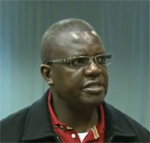 Trevor Ncube
Trevor Ncube
Trevor Ncube’s place on the list needs little introduction: Launched by Ncube in Zimbabwe, NewsDay is the first daily paper in the country to be free of government control for almost a decade.
 Martin Hamer
Martin Hamer
Digital editor at the Lancashire Evening Post, Martin Hamer was nominated by a colleague, who said: “Martin has has been a journalist since 1983, working in the online field since the 1990s. He successfully lead our newsroom of the future project which was globally recognised as leading the way for regional newspapers going digital. Much of the credit for this lies at Martin’s door.”
 Grzegorz Piechota
Grzegorz Piechota
Anyone who has had the good fortune to meet Grzegorz won’t have been able to resist his enthusiasm for his work with Polish newspaper Gazeta Wyborzca, where he is special projects editor. He is an early innovator when it comes to interactivity – from multimedia anniversary websites to organising historical city walks for readers – and isn’t afraid to experiment against, though usually ahead, of the media crowd.
 Pete Cashmore/Mashable
Pete Cashmore/Mashable
Whatever it is Mashable is doing, it’s doing something right – hundreds of social media shares on each post back me up. It’s a specialist site that shows the value of building up a loyal community, whether aggregating or writing it’s own news, get yourself on Mashable and word will spread. Image courtesy of Wei Yang on Flickr.
 Kevin Anderson
Kevin Anderson
Kevin Anderson is perhaps best known for his online journalism work for the Guardian and BBC. Now freelance, we can’t wait to see what he does next: he’s an evangelist of online and social media, but isn’t afraid to practice what he preaches, experiment and admit when he’s wrong. The journalism industry could do with more thinkers like him.
 Joel Kramer
Joel Kramer
The tagline for the non-profit news site MinnPost is “A thoughtful approach to news”. This thoughtfulness goes beyond experiments with formatting and presentation to exploring varied revenue streams and a network of local investigative journalism. This is a serious news site with experienced journalists on staff, but there’s also the feeling of a community stake through the donation scheme and the regular MinnRoast meet-ups.
 Andy Dickinson
Andy Dickinson
A self-confessed multimedia geek, Andy trains the digital journalists of the future, in his role as course leader for the BA Digital Journalism Production degree at the University of Central Lancashire. He blogs regularly at andydickinson.net and also finds time to do television editing and extra training on the side. He is a strong supporter of multimedia and the innovative use of new tools, whilst also encouraging a strong balance of traditional journalism standards.
 David Higgerson
David Higgerson
David Higgerson is one of many journalists working to improve digital at a regional and local news level. But he’s also part of a new breed of local journalists committed to improving relationships between “traditional” and new media – even non-media – and practical skills amongst the journalists he works with, including a particular focus on FOI.
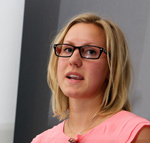 Hannah Waldram
Hannah Waldram
Hannah Waldram graduated from Cardiff Centre for Journalism studies in June 2009 and is the Guardian beatblogger in Cardiff. She has previously worked as a social reporter for Birmingham based Podnosh, and online editor at Meshed Media. Waldrum founded hyperlocal website bournvillevillage.com in August 2009 and has also blogged for Media Wales and the Birmingham Post.
 Kate Day
Kate Day
Kate Day is communities editor for Telegraph.co.uk, where she is responsible for the Telegraph’s blogs and reader community MyTelegraph. She also blogs about photography for the site and is a contributor to Photolegal, a photography podcast. She joined the Telegraph’s communities team in May 2007 and became a social networks content editor in October 2008.
 Samantha Shepherd
Samantha Shepherd
As digital projects co-ordinator for the Bournemouth Daily Echo, Sam is at the frontline of newspaper innovation in the internet age. Her journalism career began on a fortnightly paper, and her job titles have ranged from district, farming and business reporter to news agency journalists and women’s weekly features writer. She now represents all things digital at the Echo.
 Iain Overton
Iain Overton
The Bureau of Investigative Journalism is both a return to supporting classic, investigative journalism and an experiment in collaborative working and new business models for heavyweight reporting. Overseen by managing editor Iain Overton, the bureau is working with news organisations across a range of media and investing efforts in data mining and new business models.

Will Perrin/TalkAboutLocal
Will Perrin and his team at Talk About Local are changing the local media landscape one website at a time. Through training workshops and community groups, TAL is helping citizens have a voice online – but also encouraging new growth in hyperlocal news. It all began with Kings Cross Environment, the local site that Perrin set up himself.
 James Hatts, SE1
James Hatts, SE1
There’s a lot of hype about hyperlocal as a future model for local news – and in James Hatts’ case it’s justified. Hatts was still a student when London SE1, which covers London’s Bermondsey and Southwark areas, started. It’s now more than 10 years old and is a great example of quality news and information for the community with an innovative approach to making money to support that goal.
The former Birmingham Post editor makes our list because of his straight-talking, forward-thinking attitude to business journalism. Having recently helped launched a new edition of successful online business news network TheBusinessDesk.com for the West Midlands, Reeves views on niche news and the role of editorial in the commercial life of a news organisation are not to be missed.
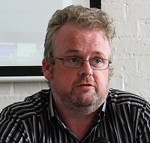
Stewart Kirkpatrick
The former editor of Scotsman.com, Kirkpatrick launched a new newspaper for Scotland in January this year. With 200,000 unique users in its first month, you wouldn’t bet against the Caledonian Mercury and Kirkpatrick’s innovative approach to creating a truly complimentary print (although this is yet to emerge I’m told…) and online newspaper with a strong and independent identity.
 Martin Moore
Martin Moore
As director of the Media Standards Trust, Martin Moore has many responsibilities and aims – but near the top of that list is more transparency for public data online and for the metadata associated with news. His work on the hNews project with the Associated Press in particular is something to keep an eye on.
 Charlie Beckett
Charlie Beckett
As director of journalism and society think tank POLIS and a former broadcast journalist, Charlie Beckett is a leading exponent of networked journalism: the idea that journalists can work together across organisations, media and with non-journalists to produced news. His research and writings on this model for journalism show a new way of thinking about the role of the journalist and reader in the production and distribution of news.
Egglestone is digital director at the School of Journalism Media and Communication at the University of Central Lancashire. He’s been instrumental in the innovative Meld and Bespoke schemes that run projects from multimedia training for freelance journalists to work aimed at improving local community relationships and living spaces through hyperlocal news, mapping and social media projects. Image courtesy of Andy Dickinson
The former Liberation journalist and colleagues from the title are busy carving out a model for successful, heavyweight and independent journalism online with Rue89. The site is not afraid to innovate when it comes to revenue models and crucially not afraid to kill off parts of its network if they’re not working. A new print offshoot has just been launched and with or without this new source of revenue Haski expects the venture to move into profit next year.
 Jason Mawer/Oxbury Media
Jason Mawer/Oxbury Media
Taking something traditional – the parish newsletter – and seeing the potential of community-interest publications when combined with cutting edge technology – Fwix – is Oxbury Media‘s game. The agency is focused on getting hyperlocal and community media networked, particularly in terms of advertising. Currently involved with more than 10,000 titles, Oxbury Media has the opportunity to create a hyperlocal powerhouse.
 Andrew Sparrow
Andrew Sparrow
Senior political correspondent for Guardian.co.uk, Andrew Sparrow showed us how liveblogging was done during the 2010 UK election campaigns: on a typical day the blog got between 100,000 and 150,000 page views, rising to two million on election night. Sparrow’s ability to report, summarise and aggregate material for the site made it a must-read and has rewritten the rulebook for online political coverage.
 Alison Gow
Alison Gow
Alison is executive editor for digital at the Liverpool Daily Post and Liverpool Echo. Gow makes the list not only for her work with those titles but also for her openness to new ideas, technologies and experimentation with journalism on the web. Her personal blog Headlines and Deadlines shares her thoughts on these developments and offers important insights into the changing role of local media and its relationship with a community online and offline.
The author of Bad Science and esteemed science writer is as influential for his loyal following – you should see the traffic spikes when he links to anything on Journalism.co.uk – as he is for his views on science journalism and transparency online. As a doctor and health professional his views on journalism come from a different perspective and can offer a necessary antidote to the “media bubble”. Image courtesy of psd on Flickr
Web editor for the Brighton Argus, Jo Wadsworth is a digital journalist who remembers the importance of offline as well as online networking. Her work on building a team of community correspondents for the paper and her efforts to help with training and mentoring for non-journalist readers wanting to get involved with the website amongst other things show the scope and rewards that a local newspaper website can bring.
 Alberto Nardelli/Tweetminster
Alberto Nardelli/Tweetminster
Alberto Nardelli knows a thing or two about Twitter and social networks – and he’s willing to share it with media and non-media partners to create a better service for users of his site Tweetminster. His and the Tweetminster team’s work shows the power of tracking real-time, social media information, while doing the filtering dirty work for us. It’s a tool for journalists and an example of how new ideas in the digital media world can take hold.
 Sarah Hartley/Guardian Local
Sarah Hartley/Guardian Local
It’s early days for the Guardian’s venture into hyperlocal ‘beatblogging’ and its architect Sarah Hartley, but the signs are positive. The three existing sites offer a model for how ‘big media’ can do local, making use of third-party websites and dedicated to the online and offline audiences for their patch.
David Cohn is the founder of Spot.Us, a model for ‘crowdfunded’, investigative journalism. Cohn has carefully built the pitching and funding model, as well as relationships with news media to create partnerships for distributing the finished articles. Spot.Us has grown out of its San Francisco base with a new venture in Los Angeles and even a project built to its model in Australia. Image courtesy of Inju on Flickr
Director and founder of non-profit, open source organisation mySociety, Tom Steinberg works to improve the public’s understanding of politics, government and democracy. With sites like FOI request site WhatDoTheyKnow, Steinberg helps create tools for journalists and ways for them to play a part in making a better society. Image courtesy of Tom Steinberg on Flickr
From her Freedom of Information rights campaigning to her work on MPs’ expenses, no list of journalism innovators would be complete without Heather Brooke. She’s both a classic investigative journalist with the nose and determination to get a story and someone who knows the best tools to challenge the data and information restrictions that can affect her line of work.
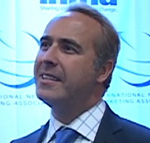 Juan Senor/Innovation Media Consulting
Juan Senor/Innovation Media Consulting
A fantastic speaker on news and magazines, in particular the notions of design and newsroom structure, Senor’s work with Innovation Media Consulting is perhaps best seen through Portuguese microformat newspaper i, a visually stunning and innovative take on what a newspaper or news magazine should look like.
 Paul Bradshaw
Paul Bradshaw
Founder of the Online Journalism Blog Paul Bradshaw will soon be leaving his online journalism teaching post at Birmingham City University – but that doesn’t mean he’ll be resting on his laurels. Through his teaching, blogging, books and Help Me Investigate site, Paul’s research and insight into new opportunities for journalists, whether that’s tools, collaborations or entrepreneurship, are not to be missed.
 Jack of Kent
Jack of Kent
A.k.a. David Allen Green. A shining example of specialist writing for the web and why bloggers shouldn’t all be tarred with the hobbyist “in their pyjamas” brush. Green’s dedication to his subject matter, his ability to distill often complex or jargon-riddled legal concepts into plain English and give the issues context should be a lesson to all specialist journalists.
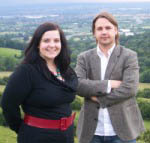 James Fryer and Michelle Byrne/SoGlos.com
James Fryer and Michelle Byrne/SoGlos.com
Online entertainment and arts magazine for Gloucestershire SoGlos.com prides itself on high standards editorially and innovation commercially. The site has embraced a start-up mentality for the news business and is quick to react to new business opportunities sparked by its editorial quality. What’s more the site is developing its model as a potential franchise for elsewhere in the UK, licensing for which would go back into supporting SoGlos.com.
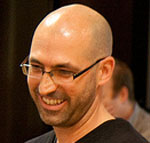 Matt McAlister/Guardian’s Open Platform
Matt McAlister/Guardian’s Open PlatformMatt McAlister is head of the Guardian’s Developer Network and the driving force behind the Guardian’s Open Platform initiative, which allows third-party developers to build applications using the Guardian’s content and data. The platform has now launched commercially – a revenue stream for journalism from a truly digital age. Image courtesy of pigsaw on Flickr
Aron Pilhofer and his team at the New York Times are pioneers in data journalism – both creating interactives and visualisations to accompany NYTimes content and opening up the title’s own data to third parties. Image courtesy of Institutt for journalistikk on Flickr
 Adam Tinworth
Adam Tinworth
The man involved with most, if not all, things with a social and digital media twist at Reed Business Information, Adam Tinworth is pushing innovation in multimedia journalism and distribution within a big publishing house. He documents his work to help other journalists learn from his experiences – whether that’s reviewing equipment or explaining a common problem – and his liveblogging abilities are something to behold!
 Joanna Geary
Joanna Geary
As part of the Times’ web development team, Joanna Geary is part of one of the biggest experiments in UK journalism. But she’s also a journalist clearly thinking about the future of journalism and news as a business and profession – whether that’s through her own use of new communication tools and technology or in setting up Ruby in the Pub, a meet-up for journalists and programmers.
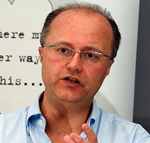






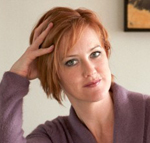
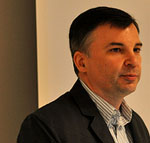
Pingback: One Man and His Blog
Pingback: The RaxList for July 22nd | raxraxrax.com
You should include Richard Wilson (@dontgetfooled) for his sterling work on Trafigura and Carter-Ruck, dodgy MPs, the ignored problems in Burundi and freedom of expression and libel: http://richardwilsonauthor.wordpress.com/
I see #jlist is become the place for CANT on COMMERCE.
Any Rum-Diver, Beausharp and Scrivener who values their neck and trade should pay CLOSE attention.
Fine work.
Rgds. Grubbe
Gentl. of WORD and PICTURE in 1710
Seller of advertised content
for his PATRONS*
*At No6.
List journalism is a shallow and arbitrary device to generate false controversy and fill pages used by newsrooms who haven’t got the time or talent to do real reporting. All examples of this should be ignored. Except this one, of course, which is spot on 😉
cheers
Charlie
xx
Thanks so much for including me – it’s an honour. I’d like to also sing the praises of a local project I work with called Brighton and Hove Community Reporters, whose website is here: http://www.bhcr.scip.org.uk.
Quelle surprise……
One Monday ‘Bespoke’ was cited in the latest RCUK Digital Economy report ‘Pioneering a Digital Future’ – and now this……. I’m going to need reminding not to to believe my own PR. Fortunatley, my office mate and Meld partner Andy Dickinson will help me with this!
Thanks very much for the inclusion in the list – should also add Hannah Waldram and John Baron who’re innovating in Cardiff and Leeds respectively. (Also led me think I should write a blog post on how to respond to being included in a list and feeling dead chuffed!) Cheers, Sarah
What a pleasent surprise to see some people who do regional work and geniune journalism included on this list.
Any ‘accredited’ list is destined to be stocked with office-inhabitating churnalists which, here’s hoping, will be yesterday’s news when their shoddy content gets superseded by quality work.
The problem is getting these proper people paid though…interesting times.
You really should include the people behind Pits n Pots in Stoke on Trent, Mike & Tony I think.
Excellent council and local political reporting and ideal for people like me who have moved away from the mother town.
http://PitsnPots.co.uk
Pingback: Some other online innovators for some other list | Online Journalism Blog
What’s the web editor of the Argus doing on there? The achievement’s of the Brighton paper’s website hardly stand shoulder to shoulder with the likes of Tweetminster, Goldacre, etc in pushing the boundaries of modern journalism
Because it’s not about the Argus or its website, it’s about the individual. She very much deserves a place on the list alongside those you mention.
Pingback: Líderes en la innovación periodística 2010 – Periodismo Ciudadano